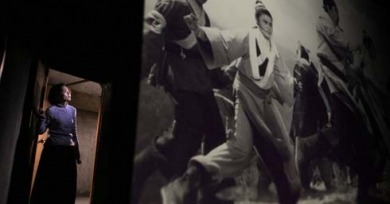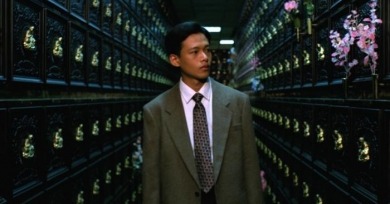Tsai Ming-liang
"When I can use one shot, I won't use a second one. But if you look closely, I often move the camera slightly, often when I'm following the characters. It does have to do with my theater training-there you don't have a camera and are dealing with real space and time issues which I've tried to carry over into my filmmaking."
When it's said that an artist-filmmaker, painter, poet, performer-“defines a generation,” it can either refer to his attempts to reflect on the behavior of his times on his canvas, or it can be mere fortunate happenstance.
What is it about the movies that make this medium so prone to hysterical paeans to itself? Just how often have lax critics dusted off that old standby, “a love letter to the movies,” in this century past? What face could launch so many professions of amour?
To describe is, always, to mislead. Words have their own logic independent of the impressions they convey, an enclosed system of meanings which the subject of description itself often has trouble penetrating.
Tsai Ming-liang works too subtly and too organically to lay it out for us, but with What Time Is It There? he explores every worthy connotation of the word departure, from taking a trip away to taking the final, mortal bow; from making a substantive personal change to simply saying goodbye.
I'd imagine Tsai bemused and more than a little bit flattered at the time and verbiage critics have spent dissecting these “two sentence films” in the service of elevating him to the forefront of ranks of world cinema's auteurs.
But what are musical numbers good for if not to allow characters to express those things the narrative cannot contain? In retrospect, Tsai’s characters seem like they’ve all just been waiting for someone to strike up the band.
With Vive L’Amour, the films of Tsai Ming-liang forever became stories of space as much as of people.
Tsai's films engage a whole mythology of distance and doldrums—one so inclined can extrapolate psychological echoes of Tennessee Williams, Dostoevsky, and Charles Schulz's Peanuts.









